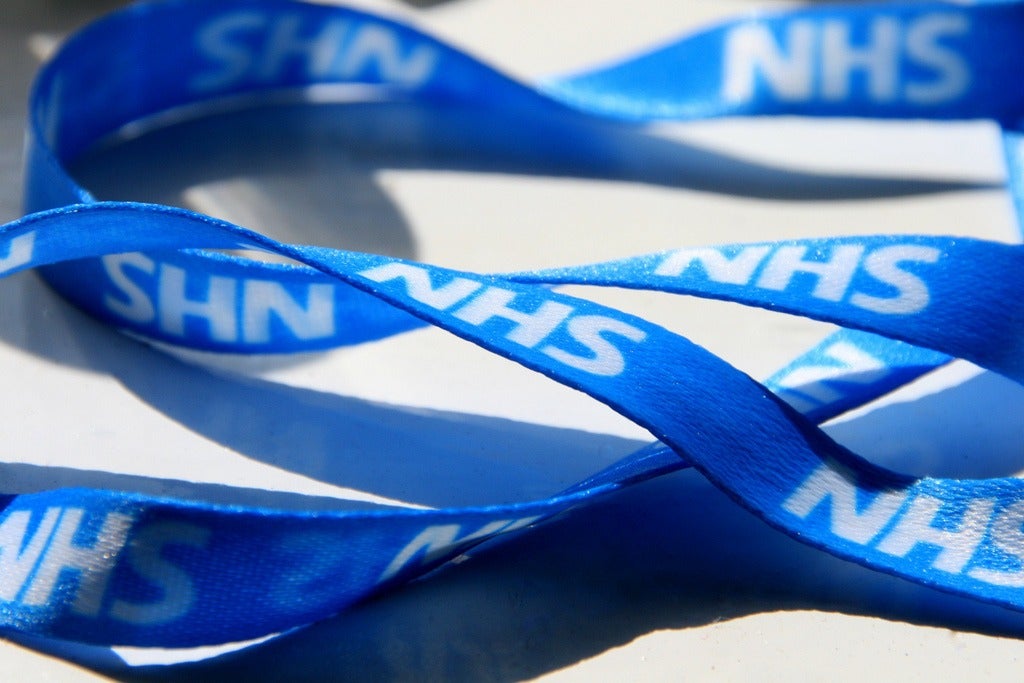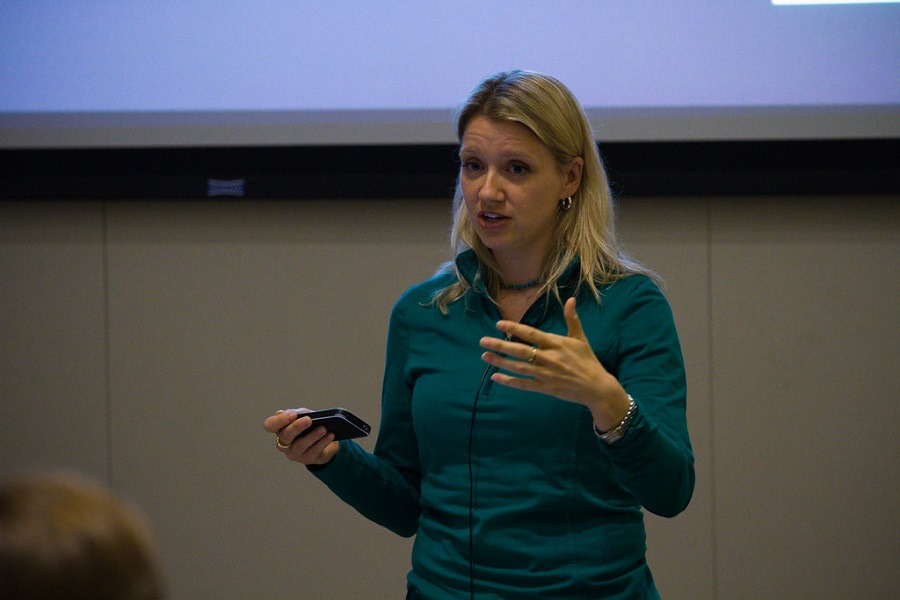NHSX chief technology officer Hadley Beeman encourages healthtech companies to approach the NHS to create a stronger health tech ecosystem

Hadley Beeman, CTO, NHSX and Chief Technology Adviser to the Secretary of State at the Department for Health and Social Care speaks at Unbound London festival (Credits: Flickr Pete)
NHSX, the new unit that will oversee the digital transformation of the UK healthcare system, is aiming to make it easier for healthtech companies to link with the NHS, says its chief technology officer Hadley Beeman.
Speaking to the CEO of Unbound London, Daniel Seal, at the company’s 2019 festival about where technology can take healthcare, she explained for the UK to remain in the lead of healthcare innovation, the current system needs to “change its architecture”.
Ms Beeman, who also acts as advisor to health secretary Matthew Hancock, said: “We know we need to reshape the market. The NHS has made it difficult to engage and we need the NHSX to create a strong healthtech ecosystem.”
“The current system doesn’t make sense and we need to change the architecture so it’s easier to get into the tech side.
“Ultimately, we are looking to lighten the load on the front-line through these solutions.”
Hadley Beeman on how healthtech start-ups can approach the NHS

Despite the NHS leading as one of the world’s most efficient healthcare systems, there’s no denying that there are still substantial opportunities to increase these efficiencies for patients to get faster access to new treatments.
Throughout the UK, medical and healthtech start-ups aim to deliver better access to operational efficiency through digital enablement, as innovation is vital to the future sustainability of the NHS.
Speaking directly to these types of firms, Ms Beeman said: “Come and speak with us. The job that doctors do is so important.
“They need modern technology from data systems in order to user interfaces that provide quality patient care.
“Without these solutions, it can be frustrating for doctors, clinicians and patients, as it pulls resources and time from patient care.”
As part of its four commitments presented in a long-term plan this year, the NHS promised to take in new technologies that include consultations through video and telephone appointments.
Other plans include trialling devices such as smart inhalers, adopting the use of AI for CT and MRI scans interpretation, as well as a project to offer children with cancer to sequence their genomes, therefore, technology in these four areas of medicine have attracted huge investment in recent years.
One example is Welsh health tech start-up Concentric, a platform that supports patients faced with the possibility of surgery to make shared decisions with their clinicians, which landed itself $279,055 investment.
Co-founder Edward St John, an NHS and academic surgeon, said: “As a clinician I’m excited to be delivering a world-leading evidence base to support patients.
“Published evidence demonstrates that patients engaged in shared decisions often make less invasive decisions, leading to both better outcomes aligned with their priorities, and projected savings of up to $9.25bn a year across the NHS.”
According to GOV UK, over the last three years, the government has invested over $79.73m to support healthtech development and adoption, which included more than 23.92m invested in the Digital Health Technology Catalyst to develop new digital health solutions.
In addition, more than £39m was invested to strengthen the academic health science networks to improve local adoption and ensuring the best innovations become available to patients quicker than ever before.
